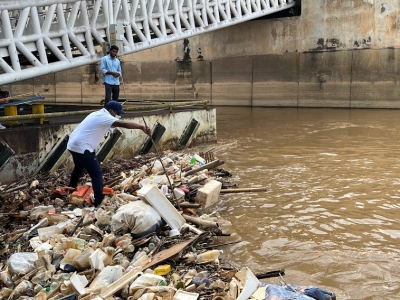
The Mekong is one of the longest rivers in the world, cutting across several Asian regions from Tibet and China to Thailand and Cambodia. But spanning a large area means the threats it faces are just as huge. What are they? Come, let’s find out.
Waste generated in any region is disposed of in many ways, including being dumped at landfills. (Only a minuscule fragment of waste is recycled globally.) Some countries export their waste. Several Asian countries have been taking in plastic waste from such countries, without really being equipped to handle waste disposal safely. In addition, these Asian countries have their own waste to deal with. The waste in landfills reach rivers and oceans through winds, rains, and drains. One such river is the Mekong. Painfully, three “of the worst six plastic polluting countries China, – Thailand, and Vietnam – have a presence in Mekong”, meaning the quantum of waste this river takes in is huge and increasing. The pandemic, with its masks, plastic sanitiser containers, take-away plastic boxes, etc., has exacerbated the situation. And, this is of grave concern.
The Mekong is a treasure trove of biodiversity – several species of plants, birds, reptiles, and fishes call the river and its surrounding regions home. But in the current scenario, rubbish is finding its way into the water, endangering wildlife. Animals and birds are in danger of being affected by plastic debris through entanglement or ingestion. There have been instances of dead whales “turning up in Thailand and Indonesia with many kilograms of plastics in their stomachs”. It is not just wildlife that’s affected. When humans consume creatures such as fish, we end up consuming plastic, which has the potential to cause serious health problems such as cancer. Since rivers drain into larger waterbodies such as seas (the Mekong mixes with the South China Sea) and oceans, the pollution they carry is transferred too.
An increase in the pollution of waterbodies is an indication of increasing pollution on land. And a grim reminder that unless we change our lifestyles to make this planet greener, we are likely to face the negative consequences of our own actions.
Picture Credit : Google




